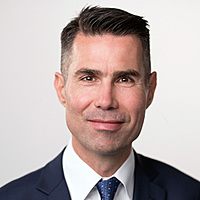Three of my learnings from 2024 that can help you invest in 2025
Politics is fluid. Watch out.
As financial markets hang on every word from the new Trump administration, trying to work out which companies and industry win and who loses from the new rules, it reminds us that politics is inherently fluid and unstable. 2024 saw major change in the political landscape in not just the US but also the UK, Germany, France, New Zealand and Canada.
Policy changes today may be reversed in four years’ time.
Think about energy policy; the Biden administration legislated major subsidies to clean energy producers, which the Trump administration has vowed to repeal.
Industries where government policy plays a major role include prescription drug companies, health insurers, makers of equipment used in semiconductor manufacturing, banks, auto manufacturers, and oil and gas producers. All of them are a risk of the government of the day changing the rules under which they operate.
As you think about your portfolio for 2025, don’t look for companies or individuals seen to be political winners or losers. The tide may change. Look instead for businesses where politics and policy don’t really matter.
New and exciting industries are also unstable and ever-changing
The last couple of years have seen much investor excitement and enthusiasm for three major themes: generative AI, weight-loss drugs, and electric vehicles. This has in turn been reflected in valuations of the presumed primary beneficiaries. However, these are nascent industries and those valuations rest on many assumptions.
Take weight-loss drugs. Which company will have the most effective drug a decade from now? How much of these costs of these drugs will be covered by insurance companies and government health organisations like Medicare and the NHS? Are there side effects that will only become apparent after years of use?
In 2024 we saw the emergence of China as a force in electric vehicles. What share of the global market will the likes of BYD and Haval have in five years’ time? How much financial assistance will the Chinese government provide, and what tariffs will their exports be subject to? Will their rapid growth force Tesla to make significant price cuts to stay competitive?
In 2025, keep in mind that with rapid growth comes considerable uncertainty.
Consider instead owning the leading companies in growing but well-established industries where the risks of a negative surprise are much lower.
Cyclical businesses look good when the cycle’s in their favour
Companies operating in naturally cyclical industries look great when the cycle is in their favour and not so great when the tide goes out. Think about banks. When the housing cycle is buoyant, interest rates are favourable and unemployment is low, banks report strongly growing earnings and high returns on equity. Furthermore, management will give you any number of reasons why this is the new normal.
Energy companies, home builders, insurance companies and semiconductor equipment manufacturers all operate in cyclical markets. Investors here face two challenges. Firstly, judging where we are in the industry cycle. Is the normal price of crude oil $70, $90 or $50 a barrel? Over the course of 2024, the oil price increased by around 20%, only to give all of the gains back and end the year where it started.
Secondly, it’s hard to judge growth rates of cyclical business objectively.
When global spending on semiconductor manufacturing equipment increased by 50% in 2021, the businesses that benefitted looked much to be higher growth and much better quality than they had done in 2016 after six years of no growth.
In 2025, rather than try to pick the upturn in cyclical industries, think of those all-weather companies that don’t get buffeted around by interest rates, commodity prices or economic activity. We find these types of businesses easier to make an investment judgement on and we’re much less likely to be disappointed by changes in the external environment.
Two companies that tick the right boxes
Two companies from the Aoris portfolio that exhibit these characteristics of being politically agnostic, established yet growing, and economically independent are Halma and RELX, both based in the UK.
Halma (LON: HLMA)
Halma is a global supplier of highly specialized products that primarily serve safety and environmental markets. These products include gas and flame detectors you mind find in an industrial facility, sensors to ensure elevator doors don’t close on a passenger, and air and water quality monitoring devices. It’s highly profitable, earning an after-tax profit margin of 15%.
Earnings per share have grown every year for at least 15 years, including during the GFC and the COVID pandemic, rising by an average of 11.5% p.a. over that period.
Remarkably, Halma has increased its dividend by 5% or more for 45 consecutive years.
RELX (LON: RELX)
RELX Plc is a leading supplier of data, analytics and decision tools to specialized professional markets. These markets include academic publishing, health practices, insurance underwriting, bank loan fraud detection, and legal practices.
The demand for RELX’s products doesn’t move with the economy, or with which political party is in office. RELX’s solutions do help make their professional customers more productive and innovative. RELX is highly profitable, earning an after-tax profit margin of close to 25% and we see many years of attractive growth ahead.
In summary
2024 reinforced to me that politics is fluid, rapid growth is accompanied by much uncertainty, and cyclical companies are difficult for investor to objectively value and appraise.
If you’d like to learn more about the Aoris portfolio and our distinctive investment approach, see that attached 2024 Annual Letter to Investors.

